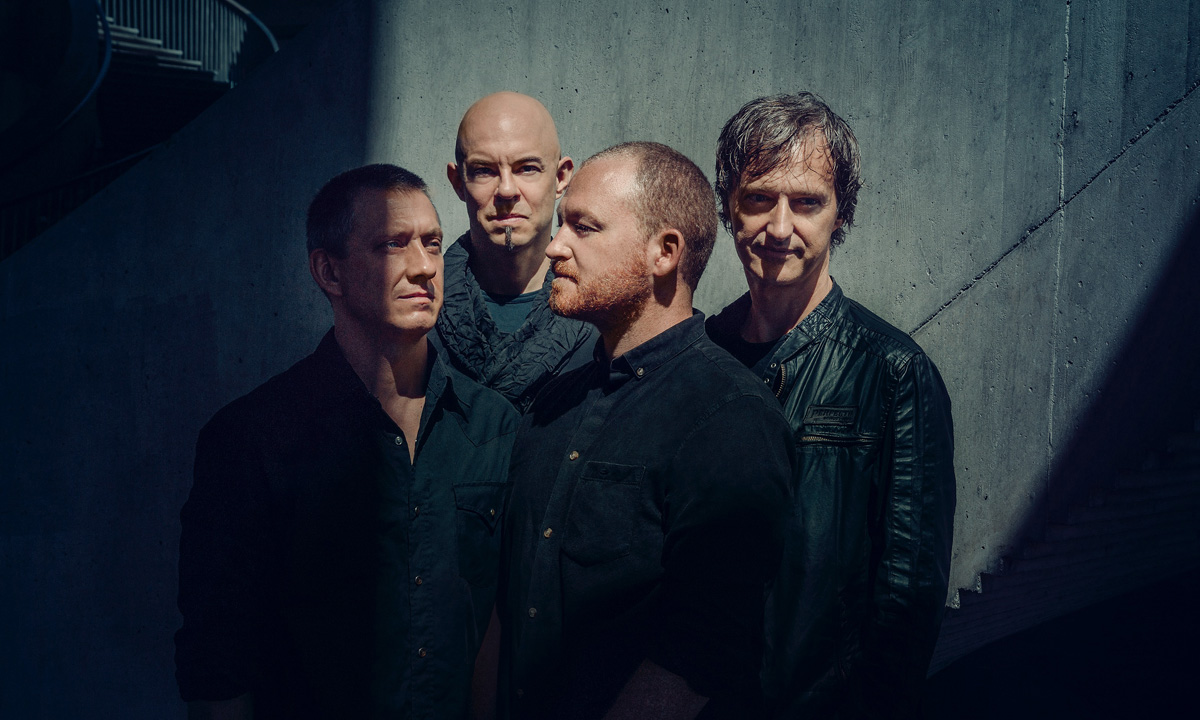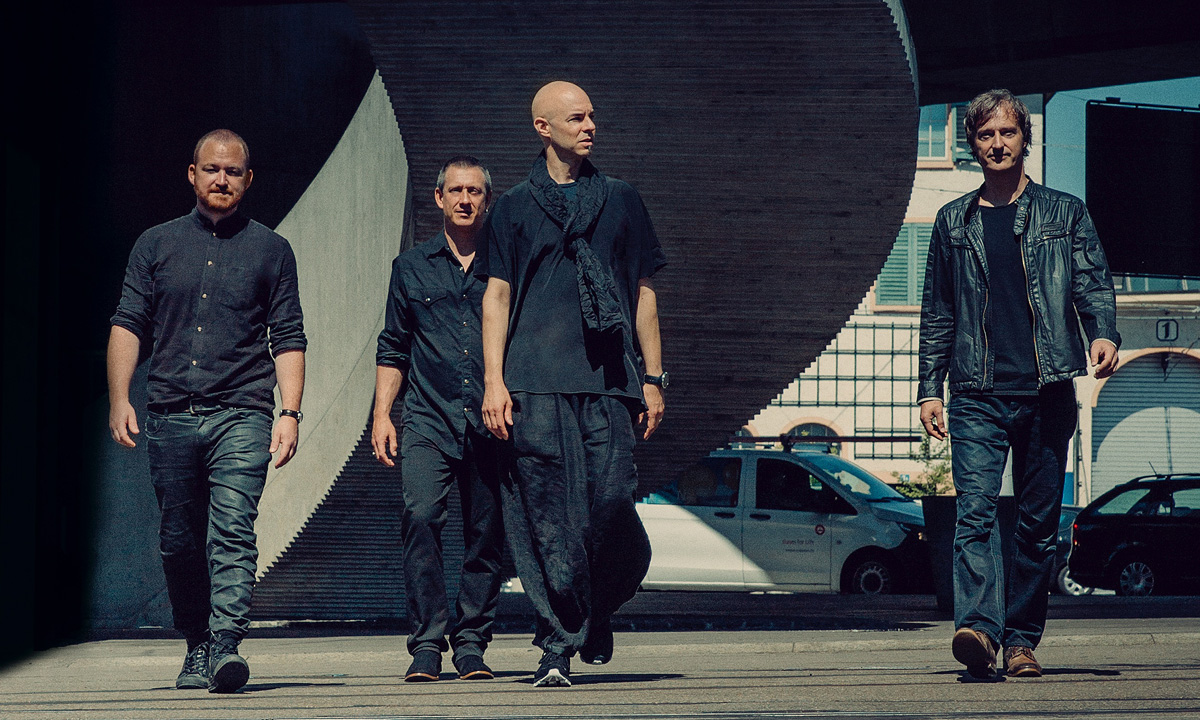변화의 에너지로 가득 찬 젠 훵크 퀄텟
자라섬재즈페스티벌에서는 해마다 한 국가를 선정해 그들의 음악을 선보인다. ‘스위스 포커스’인 2018년에는 닉 베르취‘s 로닌, 콜랑 발롱 트리오, 슈넬라톨라마이어가 내한한다. 닉 베르취는 앞서 2015년 자라섬에서 아티스트이자 크리에이티브 뮤직캠프 강사로 한국의 재즈 팬과 연주자들을 만났다.
피아니스트이자 작곡가인 닉 베르취는 1971년 스위스에서 태어나 8살 때부터 피아노와 퍼커션을 배웠다. 취리히 음악학교를 졸업한 후 취리히 대학에서 언어학과 음악학, 그리고 철학을 공부했다. 대학에서는 미학을 가르치기도 했다. 독특한 이력만큼이나 음악에서도 강한 개성이 드러난다. 닉 베르취의 모든 앨범은 자신이 작곡한 ‘Modul’에 작품 번호를 붙여 발표한다. 예를 들어 데뷔작 첫 곡은 ‘Modul 5’이고 최근작 마지막 곡은 ‘Modul 59’이다. 그리고 이 작품을 표현하기 위해 세 개의 프로젝트를 운영한다. 첫 번째는 솔로, 두 번째는 어쿠스틱 그룹 닉 베르취‘s 모바일(Mobile), 세 번째는 젠 훵크(Zen-Funk) 퀄텟 닉 베르취’s 로닌이다. 닉 베르취가 발표한 12장의 앨범 중에는 솔로 앨범 [Hishiryo: Piano Solo](2012), 3장의 닉 베르취’s 모바일과 8장의 닉 베르취’s 로닌 앨범이 있다. 주요 활동은 자라섬에서 만나게 될 닉 베르취’s 로닌인 셈이다.
2001년 결성한 닉 베르취’s 로닌은 피아니스트 닉 베르취를 필두로 클라리넷 연주자 Sha, 드러머 Kaspar Rast, 베이시스트 Thomy Jordi가 활동하고 있다. 비트와 그루브가 중심이 된 연주를 선보이지만 젠 훵크라는 표현처럼 일본의 선(禪) 사상이 녹아있다. 닉 베르취는 일본에 거주한 적도 있을 정도로 그 문화에 관심이 많은데, 로닌 역시 ‘낭인(ろうにん)’이라는 일본어에서 가져왔다. 스위스 레이블 Tonus에서 활동하다 ECM으로 이적해 2006년 [Stoa]를 통해 세계 무대에 알려지게 되었으며 [Stoa](2006), [Holon](2007), [Llyria](2010) 등 앨범을 꾸준히 선보였다. 2018년에는 현재 드러머인 Kaspar Rast가 참여한 새 앨범 [Awase]를 발표했다. 올해 자라섬에서는 네 명의 멤버 외에도 사운드와 조명 스텝을 직접 데려와 특별함이 더해진 무대를 선보일 예정이다. 매 앨범마다 새롭고 역동적인 변화를 보여주는 닉 베르취’s 로닌의 무대를 기대해본다.
With the zen-funk quartet RONIN founded in 2001, Nik Baertsch proceeds with the work on his RITUAL GROOVE MUSIC together with Kaspar Rast (drums), Thomy Jordi (e-bass) and Sha (saxophone, bass clarinet).
Their music consistently follows the same aesthetic vision under various instrumental guises: creating the maximum effect by minimal means. Despite the multiplicity of the band’s influences, Ronin’s music always possesses a strong individuality. They incorporate elements of disparate musical worlds, be they funk, new classical music or sounds from Japanese ritual music.
However, these forms are never merely juxtaposed in a post-modernist fashion but instead amalgamated into a coherent new style. Ultimately, these sounds and rhythms are highly idiosyncratic. The music consists of very few phrases and motives, continually combined and layered in new ways. Ronin thus creates a consistent aesthetic across all levels of musical expression. Composition, phrasing, sound structure, performance, and musical form all combine to form a system of interrelated elements. (Michel Mettler)
Bärtsch was signed to ECM and has released five albums with the Ronin band: <Stoa> (2006), <Holon> (2008), <Llyria> (2010), <Live> (2012), and <Awase> this year. “Awase”, a term from martial arts, means “moving together” in the sense of matching energies, a fitting metaphor for the dynamic precision, tessellated grooves and balletic minimalism of Nik Bärtsch’s Ronin. Six years have passed since the last release from the Swiss group. In the interim, trimmed from quintet to quartet size and with new bassist Thomy Jordi fully integrated, Ronin has become a subtly different band. Bärtsch speaks of a new-found freedom and flexibility in the approach to the material, with “greater transparency, more interaction, more joy in every performance”. The freedom here extends to revisiting early Bärtsch modules alongside new compositions including, for the first time on a Ronin record, a piece by reedman Sha. Awase was recorded at Studios La Buissonne in the south of France in October 2017 and produced by Manfred Eicher.





 supported by Pro Helvetia Shanghai, Swiss Arts Council
supported by Pro Helvetia Shanghai, Swiss Arts Council